IRIN
London, 22 October 2014
More than 50 percent of Americans report being afraid of a mass Ebola outbreak on US soil, according to a Harvard poll earlier this month, but health experts say the true risk is further spread of the virus within the West African region.
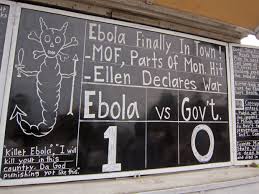 Unlike the US, which currently has four specialized isolation units, access to state-of-the-art laboratories, medical equipment, protective gear, and medicines, as well as doctors and nurses who have been specially trained in infection control, many West African nations remain ill-equipped to deal with the potential arrival of an Ebola case.
Unlike the US, which currently has four specialized isolation units, access to state-of-the-art laboratories, medical equipment, protective gear, and medicines, as well as doctors and nurses who have been specially trained in infection control, many West African nations remain ill-equipped to deal with the potential arrival of an Ebola case.
“Given that these countries have limited medical and public health resources, they may have difficulty quickly identifying and effectively responding to imported Ebola cases,” said Kamran Khan, a professor at the University of Toronto’s Division of Infectious Diseases and co-author of a new study on the likelihood of West Africa’s Ebola outbreak spreading overseas via air travel.
The risk of Ebola being spread through commercial air travel is real. Two cases have already been carried out of the region by airline passengers: one to Nigeria and one to the USA, and both of those travellers infected others before the outbreak could be contained. The question of how big of a risk this really is, is what was tackled by Khan and his team.
Their assessment, which was published this week in the London-based journal The Lancet, found that no more than three infected airline passengers a month will travel out of the affected countries between now and the end of the year, even if there were no screening at any of the points of departure. [ http://www.thelancet.com/journals/lancet/article/PIIS0140-6736(14)61828-6/abstract ]
This estimate was based on evaluations of airline timetables, passenger traffic records and projections for the number of Ebola cases in Guinea, Liberia and Sierra Leone over the coming months.
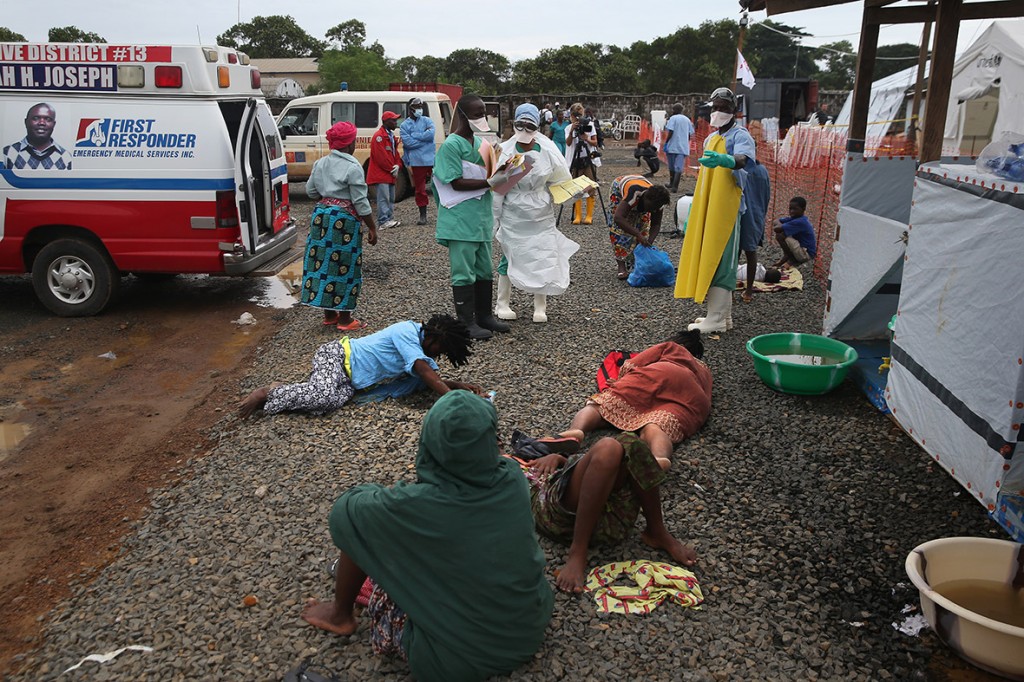 Additionally, the authors point out that that the populations of many of these countries are small and, with the exception of Nigeria, are not frequent international air travellers.
Additionally, the authors point out that that the populations of many of these countries are small and, with the exception of Nigeria, are not frequent international air travellers.
Passenger numbers have been further reduced by many airlines closing their routes from Freetown, Conakry and Monrovia, and by the slowdown in business travel because of the outbreak.
GHANA, SENEGAL AT GREATEST RISK
In addition to looking at how many people are flying out of the Ebola zone, Khan and his colleagues looked at where travellers go. In 2013, only 29 percent of African travellers went to first world destinations, with London and Paris topping the list.
Most of the others were flying to other lower or lower-middle income countries, generally within the West African region. The favourite destination was Ghana, with 17.5 percent of passenger traffic, followed by Senegal, with 14.4 percent. Then, after London and Paris, came The Gambia, with 6.8 percent of the traffic, and Côte d’Ivoire and Morocco with just over 5 percent each. Nigeria is ninth on the list and the USA 12th – at a slightly lower risk than China.
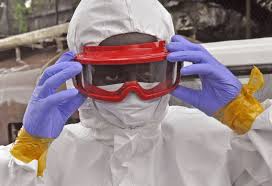 The World Health Organization (WHO) says they are most concerned about Ebola spreading to countries that share a land border with the affected countries, such as Côte d’Ivoire, Mali, Senegal and Guinea Bissau, and those that have high-volume travel and trade routes with the affected countries, such as Cameroon, Burkina Faso, South Sudan, Mauritania and The Gambia.
The World Health Organization (WHO) says they are most concerned about Ebola spreading to countries that share a land border with the affected countries, such as Côte d’Ivoire, Mali, Senegal and Guinea Bissau, and those that have high-volume travel and trade routes with the affected countries, such as Cameroon, Burkina Faso, South Sudan, Mauritania and The Gambia.
“We recognize that it [Ebola] could travel elsewhere, such as the US and Spain. but these countries elsewhere are already well-equipped to handle a disease like Ebola,” said Isabelle Nuttall, WHO’s director of Global Capacities, Alert and Response. “When we think about the neighbouring African countries, we have a bigger concern. They really need to be better prepared.”
In Senegal, just one hospital – Hôpital Principal in Dakar’s Fann neighbourhood – has set aside an isolation unit to treat Ebola patients. This is where a Guinean student, who travelled by road to Senegal and soon after tested positive for Ebola, was treated in late August.
Plans are under way to open five treatment centres along Senegal’s border with Guinea, according to the Ministry of Health’s disease control unit, but work on them has not yet started.
In Ghana, there are three small Ebola treatment units under construction in the Tema, Kumasi and Tamale regions. In the capital, Accra, three teaching hospitals have been identified to hold suspected cases before they are referred to one of these centres. Progress, however, has been slow, according to local reporters.
A NEEDLE-IN-A-HAYSTACK PROBLEM
Screening is now in place for arriving and departing passengers at all three international airports in Guinea, Liberia and Sierra Leone: all passengers are temperature-checked and must fill out a brief health survey. Had this been in place at the time, it would certainly have caught Patrick Sawyer, the man who took Ebola to Nigeria, who was ill before he got on the plane.
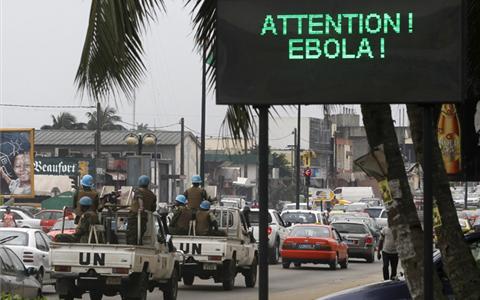 It would not, however, have caught Thomas Duncan, from Liberia, who had no symptoms until after he arrived in the US in September.
It would not, however, have caught Thomas Duncan, from Liberia, who had no symptoms until after he arrived in the US in September.
The US now requires passengers coming from any of the three affected countries to first go through an enhanced screening process at one of five airports, before continuing on to their final destination.
At both Accra and Dakar airports health workers check the temperature of all passengers arriving from regional transit hubs such as Casablanca.
But for countries such as the UK, for instance, which has no direct flights from any of the three countries, once you start arrival screening for passengers on connecting flights you have a true needle-in-a-haystack problem. The Lancet article authors calculate that you would have to sift through more than 2,500 travellers before you found even one who had set foot in Liberia, Guinea or Sierra Leone during the past 21 days.
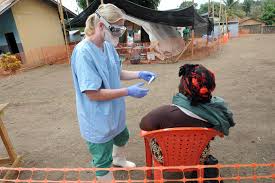 Some passengers from the Ebola-affected regions of West Africa arriving at London’s Heathrow airport in the past week have been surprised to be asked whether they would like to be checked for fever. The staff administering the checks in London did not seem to regard them as urgent enough to be compulsory, perhaps reflecting the expert advice that they are of very little practical use in detecting people carrying the Ebola virus.
Some passengers from the Ebola-affected regions of West Africa arriving at London’s Heathrow airport in the past week have been surprised to be asked whether they would like to be checked for fever. The staff administering the checks in London did not seem to regard them as urgent enough to be compulsory, perhaps reflecting the expert advice that they are of very little practical use in detecting people carrying the Ebola virus.
“The best approach to minimize risks to the global community is to control the epidemic at its source,” said Khan. “While screening travellers arriving at airports outside West Africa may offer a sense of security, this would have at best marginal benefits.”
IRIN
IRIN is the humanitarian news
and analysis
service
of the
UN
Office for the Coordination of Humanitarian affairs
The opinions expressed
do not necessarily
reflect those
of the United Nations
or its Member States

